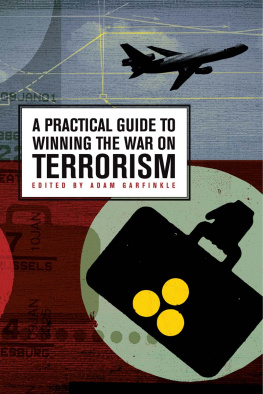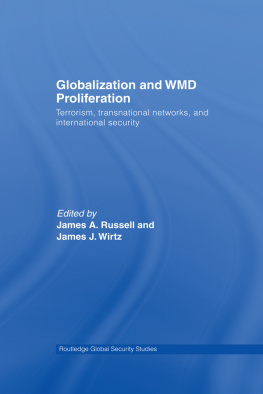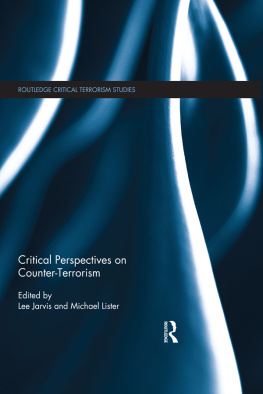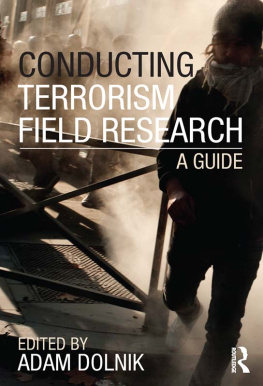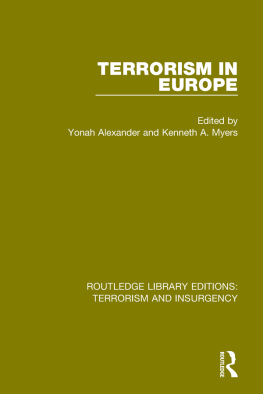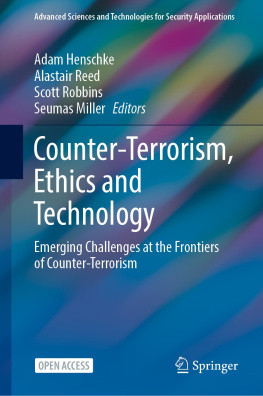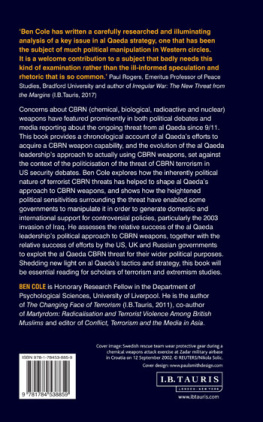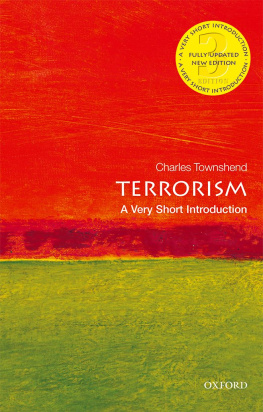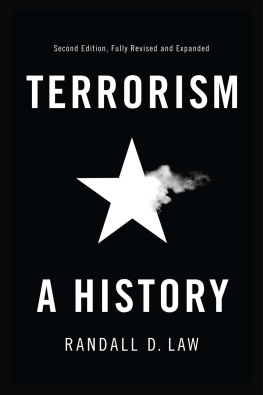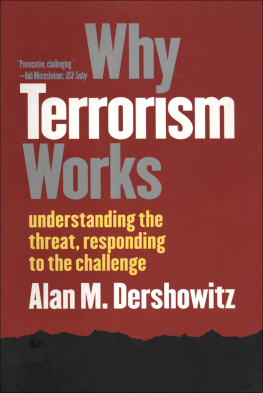The Hoover Institution on War, Revolution and Peace, founded at Stanford University in 1919 by Herbert Hoover, who went on to become the thirty-first president of the United States, is an interdisciplinary research center for advanced study on domestic and international affairs. The views expressed in its publications are entirely those of the authors and do not necessarily reflect the views of the staff, officers, or Board of Overseers of the Hoover Institution.
www.hoover.org
Hoover Institution Press Publication No. 530
Copyright 2004 by the Board of Trustees of the Leland Stanford Junior University
All rights reserved. No part of this publication may be reproduced, stored in a retrieval system, or transmitted in any form or by any means, electronic, mechanical, photocopying, recording, or otherwise, without written permission of the publisher.
First printing 2004
10 09 08 07 06 05 04 9 8 7 6 5 4 3 2 1
Manufactured in the United States of America
The paper used in this publication meets the minimum requirements of American National Standard for Information SciencesPermanence of Paper for Printed Library Materials, ANSI Z39.48-1992.

Library of Congress Cataloging-in-Publication Data
A practical guide to winning the war on terrorism / edited by Adam Garfinkle.
p. cm. (Hoover national security forum series)
Includes bibliographical references and index.
ISBN 0-8179-4542-3 (alk. paper)
1. TerrorismPrevention. 2. War on Terrorism, 2001 3. TerrorismGovernment policyUnited States. 4. United StatesForeign relationsMiddle East. 5. Islam and terrorism. I. Garfinkle,
Adam M., 1951 II. Series.
HV6431.P67 2004
303.625dc22
2004002417
Authors
Lisa Anderson is dean of the School of International and Public Affairs at Columbia University. She has been on Columbias faculty since 1986; prior to her appointment as dean, she served as chair of the Political Science Department and director of Columbias Middle East Institute. She is author of The State and Social Transformation in Tunisia and Libya, 18301980 (1986), coeditor of The Origins of Arab Nationalism (1991), editor of Transitions to Democracy (1999), and author of Pursuing Truth, Exercising Power: Social Science and Public Policy in the Twenty-first Century (2003).
In addition to her responsibilities at Columbia, Dean Anderson served as president of the Middle East Studies Association in 2003. She is also on the board of directors of Human Rights Watch, where she serves as cochair of the Middle East Advisory Committee. She is also chair of the Board of the Social Science Research Council.
Stephen Philip Cohen is a senior fellow in Foreign Policy Studies at the Brookings Institution. He was educated at the Universities of Chicago and Wisconsin and taught for many years at the University of Illinois. He has also served on the policy planning staff of the Department of State.
Dr. Cohen was the cofounder and chair of the workshop on Security, Technology and Arms Control for younger South Asian and Chinese strategists. He is the author or coauthor of ten books on Indian and Pakistani security policies and on American relations with the region. His most recent book is The Idea of Pakistan and the Future of a Troubled State (2004).
Michele Durocher Dunne is visiting assistant professor of Arabic language, linguistics, and literature at Georgetown University. She served in the Department of State from 19862003, including assignments as director of Near East Regional and North African Affairs at the National Security Council, on the secretary of states policy planning staff, at the U.S. Embassy in Cairo, and at the U.S. Consulate General in Jerusalem.
Dr. Dunne holds a Ph.D. from Georgetown University in Arabic language and linguistics. She is the author of Democracy in Contemporary Egyptian Political Discourse (2003), which employs methods from linguistics and anthropology in a new approach to understanding political discourse in the Arab world.
Dale F. Eickelman, Ralph and Richard Lazarus Professor of Anthropology and Human Relations at Dartmouth College, has conducted extensive field research in North Africa and the Arabian Peninsula since the late 1960s. His recent books include The Middle East and Central Asia: An Anthropological Approach, 4th ed. (2002), and Muslim Politics (1996; new edition 2004), the latter of which was coauthored with James Piscatori.
In 2003, Indiana University Press published the second edition of New Media in the Muslim World: The Emerging Public Sphere, coedited with Jon W. Anderson, and in 2004, Brill will publish Public Islam and the Common Good, coedited with Armando Salvatore. Eickelman is also relationship coordinator for the American University of KuwaitDartmouth College project, which is the first English-language liberal arts university in Kuwait.
Graham E. Fuller, a former vice chair of the National Intelligence Council at the Central Intelligence Agency, has lived many years in different parts of the Muslim world. He also was a senior political scientist at RAND Corporation for twelve years. He is currently an independent writer and analyst and has written numerous books and articles about the Muslim world. His latest book is The Future of Political Islam (2003), which deals with the broader phenomenon of Islamist politics in a global context of developing world politics, including its terrorist aspects.
Adam Garfinkle is former editor of The National Interest and chief writer of the reports of the U.S. Commission on National Security/21st Century (the Hart-Rudman Commission). He has taught Middle East politics and U.S. foreign policy at the University of Pennsylvania, Haverford College, and the School of Advanced International Studies of the Johns Hopkins University. He was a research fellow at the Hoover Institution during 2003. The author of seven books and numerous essays, he is presently speechwriter to the secretary of state and a member of the Department of States Policy Planning staff. His work on and in this book reflects only his own views and does not represent the views of the U.S. government or the Department of State.
F. Gregory Gause III is an associate professor of political science at the University of Vermont and director of the universitys Middle East studies program. He was previously on the faculty of Columbia University (19871995) and was fellow for Arab and Islamic studies at the Council on Foreign Relations (19931994).
He is the author of two books, Oil Monarchies: Domestic and Security Challenges in the Arab Gulf States (1994) and Saudi-Yemeni Relations: Domestic Structures and Foreign Influence (1990). His recent articles on Saudi Arabian politics have appeared in Foreign Affairs, World Policy Journal, Middle East Policy and a number of edited volumes. He is currently working on a book project on the international politics of the Persian Gulf region since 1971.
His Royal Highness Prince El Hassan bin Talal has initiated, founded, and is actively involved in a large number of Jordanian and international institutes and committees. He is a founding member of the Parliament of Cultures, established in Istanbul in July 2003 to promote understanding among cultures of the world. His Royal Highness is currently working with several American nongovernmental organizations on a program called

